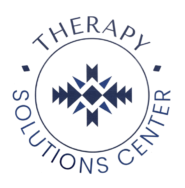
Happiness Team: A Therapist’s Tips for Healthy Relationships
Relationships are the lifeblood of our human experience, intricately woven into the fabric of our existence. They are the means through which we express love, empathy, and understanding. They have the potential to forge connections that can enrich our lives in profound ways. As social beings, our need for relationships is ingrained in our DNA, dating back to the earliest stages of human evolution. Relationships can help us to feel more connected to others, and remind us that we are not alone in our journey. Research has shown that relationships have the power to influence physical and mental health. People who have social support from family, friends, and their community are happier, have fewer health problems, and live longer. Conversely, a relative lack of social ties is associated with depression and later-life cognitive decline, as well as with increased mortality.
The Impact of Early Relationships
Early family relationships lay the foundation for our perceptions of the world and our place in it.
If these relationships go well, they can provide us with a sense of belonging, acceptance, and validation, serving as mirrors that reflect our emotions and experiences. These connections can offer solace during times of struggle and amplify our joy during moments of celebration.
However, these formative interactions can sometimes go awry, casting shadows that linger into adulthood. Unresolved conflicts, lack of emotional validation, or inconsistent nurturing in our early family dynamics can impact our ability to form healthy relationships later in life. For instance, if we experienced inconsistent love or affection, we might struggle with feelings of unworthiness or fear of abandonment as adults. Similarly, if we witness unhealthy communication patterns between our parents, we might unwittingly replicate these patterns in our own relationships. The wounds from childhood left unattended, can become emotional baggage that affects how we view ourselves and relate to others. Recognizing these early scars and addressing their impact through self-awareness and professional guidance can be the first step toward rewriting the narrative, allowing us to break free from old patterns and pave the way for healthier, more fulfilling relationships in the present and future.
The Relationship Team
I enjoy making an analogy of relationships to teams.
A relationship can be likened to a team in many ways. Just as a successful team thrives on collaboration, communication, and a shared sense of purpose, a couple’s relationship flourishes when they embody similar principles.
In a relationship-team, both partners work together towards common goals, whether it’s creating a harmonious home, raising a family, or pursuing individual and shared aspirations. Like team members, each partner brings their unique strengths, skills, and perspectives, which when combined, create a more powerful and well-rounded unit. Just as team members communicate to coordinate efforts, open and honest communication is the cornerstone of a strong relationship. Effective communication helps partners understand each other’s thoughts, emotions, and needs, fostering a deeper connection and preventing misunderstandings. In a team, success hinges on mutual respect and support. Similarly, in a healthy relationship, partners respect each other’s individuality and support one another’s growth and well-being. Just as team members celebrate wins and provide encouragement during challenges, partners celebrate each other’s achievements and offer comfort during tough times.
Much like a team benefits from strategic planning and adapting to changing circumstances, couples navigate their journey by planning for their future and adjusting their course as needed. When challenges arise, partners collaborate to find solutions, demonstrating their commitment to the team they’ve built. Ultimately, a relationship team thrives on unity, shared values, and a mutual investment in each other’s happiness. Just as a team’s success is reflected in its members’ accomplishments, a couple’s relationship success is mirrored in their individual growth, shared experiences, and the unwavering bond they’ve nurtured as a team.
When Therapy Can Help
In the intricate dance of relationships, there are times when the steps become complex and challenging to navigate. Emotions, conflicts, and misunderstandings can create tangles that threaten the harmony we seek. This is where the guidance of a skilled therapist comes into play, offering an unbiased perspective that can bring clarity, and help us to navigate the often tumultuous waters of relationships. The therapist can provide a safe space to explore emotions, fears, and desires, enabling an understanding of ourselves and our partners on a deeper level. By delving into the roots of our attachment patterns and communication styles, therapists help us unearth the underlying sources of conflicts and create pathways to healing. Their expertise equips us with tools to communicate effectively, manage differences, and cultivate empathy—essentials for building and maintaining healthy relationships. A therapist’s role is to help refine relationships, fostering a sense of trust, intimacy, and mutual understanding. Through this journey of self-discovery and growth, a therapist’s support becomes a transformative force that not only enriches our connections but also nurtures happiness within us.
What Therapists Do To Help
As a compassionate mental health therapist, my mission is to guide individuals on a journey of creating and nurturing healthy relationships that bring joy, fulfillment, and growth. Relationships are the cornerstone of our emotional well-being, shaping our lives in profound ways. Drawing from therapeutic insights, let’s explore practical steps you can take to cultivate harmonious and thriving connections in your life.
- Cultivate Open Communication: The foundation of any healthy relationship lies in open and honest communication. Create an environment where both partners feel safe to express their thoughts and emotions without fear of judgment. Active listening, empathy, and validation play crucial roles in fostering an atmosphere of understanding.
- Prioritize Emotional Connection: A strong emotional bond is the heart of a healthy relationship. Focus on building an emotional connection by sharing your feelings, aspirations, and vulnerabilities. When both partners are willing to open up, it creates an intimate space where you can truly understand each other.
- Practice Empathy: Empathy is the bridge that connects hearts. Make an effort to understand your partner’s perspective, putting yourself in their shoes. This doesn’t mean you have to agree with everything, but it does mean acknowledging their feelings and experiences.
- Validate Each Other’s Emotions: Validation is a powerful tool in building emotional intimacy. Instead of dismissing or belittling your partner’s feelings, acknowledge and validate them. This creates a sense of validation and acceptance that fosters a deeper bond.
- Foster Trust and Security: Trust is the cornerstone of any successful relationship. Cultivate trust by being reliable, keeping your promises, and showing consistency in your actions. A sense of security in the relationship allows both partners to feel safe to be themselves.
- Explore Attachment Styles: Recognize your attachment styles and how they influence your behaviors and reactions in relationships. Understanding your attachment patterns can help you navigate triggers and foster a more secure and stable connection.
- Embrace Conflict as an Opportunity: Conflict is a natural part of any relationship. Instead of fearing it, view it as an opportunity for growth. Approach conflicts with a willingness to understand, resolve, and learn from them.
- Engage in Meaningful Rituals: Rituals and routines create a sense of togetherness. Whether it’s a weekly date night, a morning coffee together, or even sharing a favorite TV show, these shared experiences reinforce your bond and provide an opportunity to connect.
- Practice Self-Care and Individual Growth: Healthy relationships thrive when individuals prioritize self-care and personal growth. When you invest in your well-being, you bring your best self to the relationship, enhancing your connection.
- Celebrate Each Other’s Achievements: Celebrate your partner’s successes, both big and small. Be their cheerleader and provide unwavering support. Sharing in each other’s achievements creates a positive atmosphere and strengthens the emotional bond.
- Be Mindful of Non-Verbal Communication: Non-verbal cues like eye contact, physical touch, and gestures convey powerful messages. Make an effort to use these forms of communication to show affection, appreciation, and understanding.
- Nurture Intimacy: Intimacy goes beyond physical closeness. It involves emotional vulnerability and a deep connection. Create moments for deep conversations, shared experiences, and genuine moments of connection.
- Cultivate a Culture of Appreciation: Express gratitude and appreciation for each other regularly. Acknowledge the qualities you admire in your partner and express how much they mean to you.
- Learn from Challenges: Instead of viewing challenges as roadblocks, view them as opportunities for growth. Each challenge you overcome together strengthens your bond and deepens your connection.
- Prioritize Quality Time: In our fast-paced lives, spending quality time together can often take a backseat. Prioritize meaningful interactions where you can truly connect and engage with each other.
Nurturing a Tapestry of Connection
As a mental health therapist, I’ve witnessed the incredible transformations that occur when individuals commit to nurturing healthy relationships. The journey involves patience, understanding, and a willingness to learn and grow together. By incorporating these principles, you can weave a tapestry of connection that celebrates each partner’s uniqueness while fostering an unbreakable bond. Remember, every effort you invest in your relationships is an investment in your own emotional well-being and the joy of shared experiences with others.
To get help in navigating a stressful relationship or to create a relationship of your own design-feel free to reach out to me to set up an appointment. You are worth it! You must be based in Massachusetts in order to be involved in therapy with us.
If this article has sparked an interest in you about seeking therapy-lets have a conversation to see if therapy with us is a good fit for you. Schedule a free consultation.
Further reading:
https://www.health.harvard.edu/staying-healthy/the-health-benefits-of-strong-relationships
